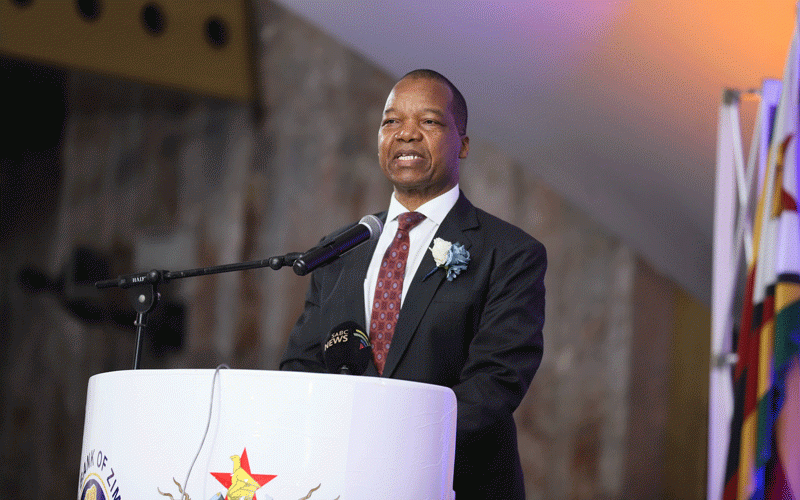
Mutapa Investment Fund (MIF) head John Mangudya says he plans to shake up the US$130 million joint venture (JV) deal between Cold Storage Company (CSC) and the United Kingdom-based Boustead Beef.
In an exclusive interview with the Zimbabwe Independent, Mangudya, the former Reserve Bank of Zimbabwe Governor who now heads the sprawling business empire set up to control high profile State firms, said crucial parts of the 2019 JV had not been met, and CSC — formerly one of the region’s biggest meat processors — remained in the doldrums.
“We have identified that we need to deal with the joint venture, which is not functioning the way it was expected,” Mangudya told the Independent during a trip to the Bahamas last week.
“That joint venture was signed on the 19th of January 2019. Five years down the line, nothing much has happened on the ground. It needs to be reviewed. We now need to say, ‘what is the best strategy of ensuring that we put this low hanging fruit to good use for the purpose of securing employment, farmers and everything.’ There is plenty of demand for our beef,” said Mangudya, who assumed the role after his term as central bank governor expired this year.
“CSC is a low hanging fruit because it owns beef and the markets are there.”
MIF is laying the groundwork for full scale operations after President Emmerson Mnangagwa renamed the Sovereign Wealth Fund to MIF last year, mandating it to preside over at least 30 embattled parastatals including CSC — some of them on the brink of insolvency.
Others include the National Railways of Zimbabwe, Air Zimbabwe, Zimbabwe United Passenger Company, Cottco, Kuvimba Mining House, Silo Investments, National Oil Company of Zimbabwe, PetroTrade, POSB, TelOne, Arda Seeds, Zimbabwe Power Company, Powertel Communications, Allied Timbers, Telecel, Industrial Development Corporation, Hwange Colliery Company Limited, power utility Zesa Holdings and Fidelity Gold Refinery.
This big balance sheet makes MIF one of the country’s most strategic and influential companies.
- Mangudya to remodel US$130m CSC deal
Keep Reading
But the empire has the tough task of rebuilding troubled assets whose contribution to gross domestic product plummeted to 12% in 2021, from 40% during boom times in the 1990s.
The 25 year JV was inked to escalate efforts to turnaround the meat processor.
Pursuant to the transaction, Boustead assumed control of CSC ranches and meat processing facilities countrywide.
It also took over the responsibility to manage CSC’s distribution centres and residential properties in Harare, Gweru and Mutare, after undertaking to pour about US$130 million to rebuild the firm over five years, bankrolling facelifts of several key facilities, along with providing working capital.
Of that amount, US$45 million was expected to be invested in the first year of the agreement.
But while officially re-opening the beef processing plant in Bulawayo in August 2022, Vice-President Constantino Chiwenga revealed that Boustead had only injected US$24 million into the business, which was a violation of the transaction, which is called the Livestock Joint Farming Concession Agreement (LJFCA).
The company was also expected to pay US$100 000 annum rentals during the first five years of the deal.
Mangudya added: “We (need to) pay the creditors, which are there, and it needs money to ensure that we spruce up abattoirs in Marondera, Masvingo and Chinhoyi so that we can start slaughtering and then we export. I think Bulawayo is fairly okay.”
“We need to actualise that low-hanging fruit. We have started. We have engaged the joint venture holder, which is Boustead Beef, and we have advised them of the need for us to review it. We have also been discussing with the business rescue practitioner on the same issue. So at the end of day, we do things in a very amicable manner to ensure that we go forward,” Mangudya noted.
CSC’s creditors include the Zimbabwe Electricity Supply Authority, National Social Security Authority and the urban councils of Bulawayo, Harare and Chinhoyi.
The firm slipped into corporate rescue in 2020.
According to the LJFCA, CSC has a right to terminate the deal if Boustead fails to fulfil clause 4.1 within four months of the signing of the transaction.
The clause says Boustead Beef should, upon signing the agreement, show proof of funding to the tune of US$130 million within period of four months.
Apart from distribution centres and residential properties, CSC owns ranches which include Maphaneni Ranch, Dubane Ranch, Umguza Chomfukwe Dubane Umzingwane-Railway Block Gwanda Ranch, Chivumburu, Mushandike Ranch (Meyers Rust), Zeederberg Belwigwe, Willsgrove Feedlot and Darwendale Ranch.
It’s Bulawayo operation has Africa’s largest slaughtering facility, second only to Botswana Meat Commission in terms of the latest technologies. It owns properties all over the country, which, in the ordinary course this asset could be leveraged to raise capital to finance the company’s turnaround.
At Independence in 1980, CSC was one of Zimbabwe’s major foreign currency earners, as it exported thousands of tonnes of beef to the European Union.
At its peak, the beef processor and marketer used to handle up to 150 000 tonnes of beef and associated by-products annually and exported to the EU, where it had an annual quota of 9 100 tonnes of beef.










